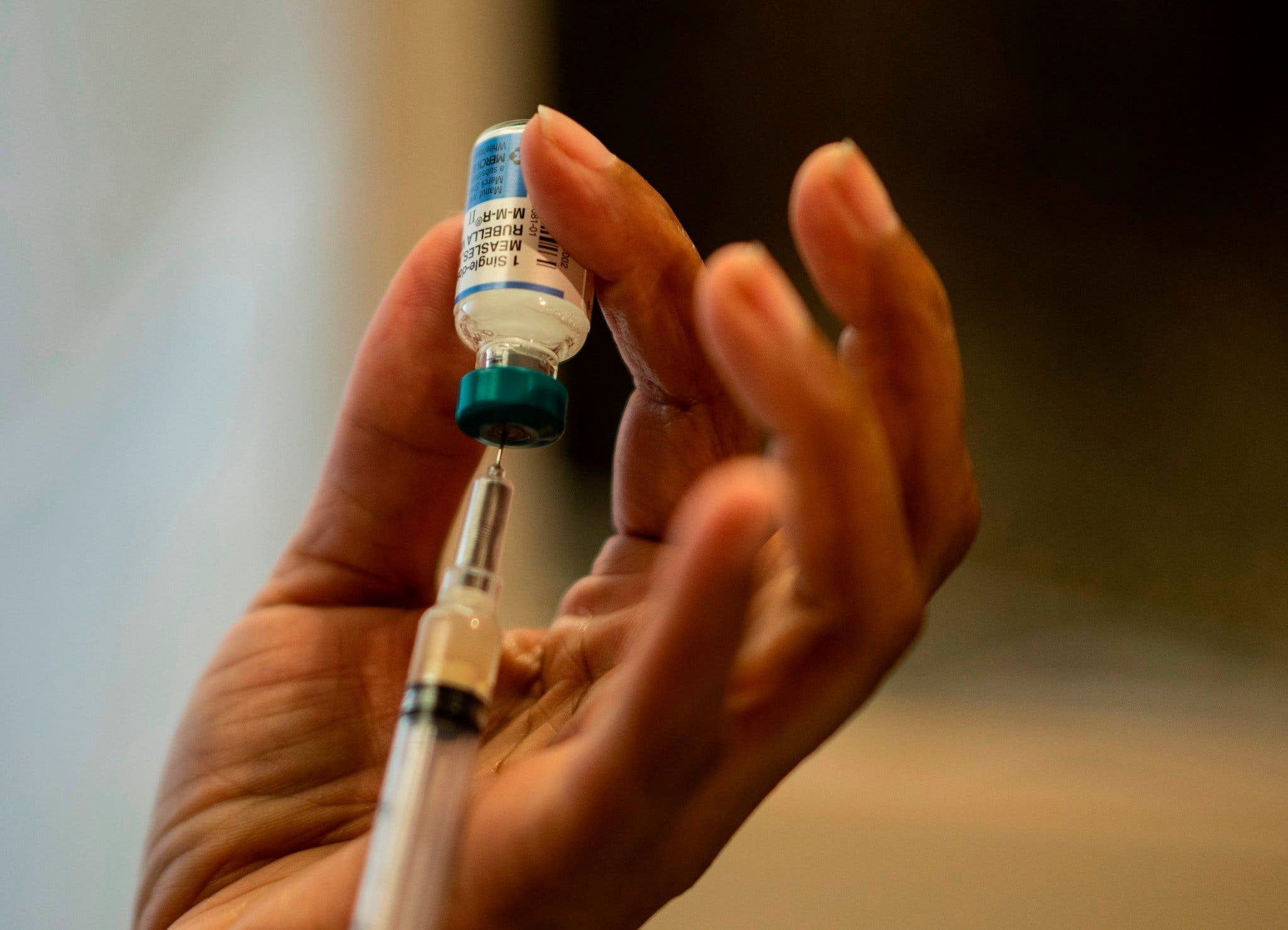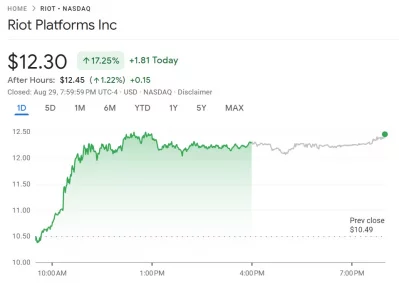The US Responds To Measles Outbreak With Strengthened Vaccine Oversight

Table of Contents
A recent measles outbreak in the US has highlighted critical vulnerabilities in our public health infrastructure. This alarming resurgence, impacting numerous communities, has prompted a significant response from federal and state agencies, focusing on strengthening measles vaccine oversight to prevent future outbreaks. This article explores the key aspects of this strengthened oversight and its implications for public health in the United States.
<h2>Increased Vaccination Rates as a Primary Focus</h2>
The most effective way to combat measles is through high vaccination rates. Achieving this requires a multi-pronged approach targeting both vaccine access and addressing vaccine hesitancy.
<h3>Targeted Public Health Campaigns</h3>
Combating misinformation and vaccine hesitancy is crucial for increasing vaccination rates. Effective public health campaigns play a vital role in this effort.
- Examples of successful campaigns: The CDC's "Vaccines Work" campaign, utilizing relatable stories and celebrity endorsements, has proven effective. State-level campaigns often leverage local community leaders and trusted healthcare providers.
- Use of social media: Social media platforms are increasingly important for disseminating accurate information and engaging with communities. Targeted advertising and influencer partnerships can help reach specific demographics.
- Partnerships with community leaders: Collaboration with trusted community leaders, religious figures, and local organizations helps build trust and overcome cultural barriers to vaccination.
Clear, evidence-based messaging is paramount. Addressing common concerns regarding vaccine safety, such as the debunked link between vaccines and autism, requires transparent and accessible information. This approach builds public confidence and encourages vaccination.
<h3>Improved Vaccine Access and Distribution</h3>
Equitable access to the measles vaccine is critical, especially in underserved communities. Initiatives to improve access include:
- Mobile vaccination clinics: Bringing vaccination services directly to communities lacking convenient access to healthcare facilities.
- Partnerships with healthcare providers: Working with a wider network of healthcare providers, including Federally Qualified Health Centers (FQHCs), ensures that vaccination services are readily available.
- Addressing logistical barriers: Overcoming transportation, financial, and language barriers through programs offering free or low-cost vaccines, transportation assistance, and multilingual resources.
Reducing financial and geographical barriers ensures that vaccination is accessible to all, regardless of socioeconomic status or location. This is essential for achieving herd immunity and preventing outbreaks.
<h2>Enhanced Surveillance and Outbreak Response Mechanisms</h2>
Early detection and rapid response are crucial in controlling measles outbreaks. Improvements in surveillance and response mechanisms are critical to achieving this.
<h3>Strengthened Reporting Systems</h3>
Real-time data tracking and improved communication between healthcare providers and public health agencies are fundamental to effective surveillance.
- Real-time data tracking: Modern electronic reporting systems allow for quicker identification of potential outbreaks.
- Improved communication between healthcare providers and public health agencies: Streamlined reporting protocols and digital platforms ensure swift information sharing.
Early detection allows for immediate containment efforts, minimizing the spread of the disease and reducing its impact on the community. This rapid response is key to preventing large-scale outbreaks.
<h3>Rapid Response Teams and Resource Allocation</h3>
Effective outbreak response requires well-trained rapid response teams and efficient allocation of resources.
- Examples of successful rapid response strategies: The coordinated efforts seen in past outbreaks demonstrate the value of pre-planned strategies, effective communication channels, and readily available resources.
- Improved coordination between different agencies: Strengthened inter-agency collaboration ensures a unified and efficient response.
Proactive measures, including stockpile management of vaccines and personal protective equipment, are crucial for effective response. Preparedness and efficient resource allocation limit the impact of future outbreaks.
<h2>Regulatory Changes and Policy Updates</h2>
Strengthened regulations and updated policies play a vital role in enhancing measles vaccine oversight.
<h3>Strengthened Vaccine Safety Monitoring</h3>
Continuous monitoring and transparent communication are essential for maintaining public trust.
- Enhanced data collection: Improved systems for collecting and analyzing adverse event reports ensure thorough monitoring of vaccine safety.
- Improved analysis of adverse events: Sophisticated data analysis techniques help identify any potential safety signals.
- Transparent communication of findings: Open and honest communication of findings builds trust and allows for prompt action if necessary.
This rigorous monitoring strengthens public trust and facilitates rapid identification of any potential safety concerns.
<h3>Policy Changes to Support Vaccination</h3>
Policy changes at the state and federal levels aim to increase vaccination rates.
- Examples of mandatory vaccination policies: Many states have implemented mandatory vaccination policies for school entry, reducing exemptions.
- Removal of non-medical exemptions: Restricting non-medical exemptions reduces the number of unvaccinated individuals, thus lowering the risk of outbreaks.
- Increased funding for vaccination programs: Greater investment in vaccination programs enhances access and affordability.
While these policies aim to improve public health, they also raise important discussions about individual liberties and public health mandates.
<h2>Conclusion</h2>
The recent measles outbreak has underscored the critical need for robust measles vaccine oversight in the US. By focusing on increased vaccination rates, enhanced surveillance, and crucial regulatory changes, the nation is taking significant steps to strengthen its public health infrastructure and protect its citizens. Continued vigilance and commitment to effective measles vaccine oversight, including robust vaccine safety monitoring and improved public health communication, are vital to preventing future outbreaks and ensuring the health and well-being of all Americans. Let's work together to improve measles vaccine oversight and create a healthier future.

Featured Posts
-
 Is That Christina Aguilera Fans Discuss Her Altered Appearance
May 03, 2025
Is That Christina Aguilera Fans Discuss Her Altered Appearance
May 03, 2025 -
 Is Riot Platforms Riot Stock A Good Investment Comparing It To Coinbase Coin
May 03, 2025
Is Riot Platforms Riot Stock A Good Investment Comparing It To Coinbase Coin
May 03, 2025 -
 Epic Games Hit With New Fortnite Lawsuit In Game Store In The Crosshairs
May 03, 2025
Epic Games Hit With New Fortnite Lawsuit In Game Store In The Crosshairs
May 03, 2025 -
 500 Nhl Points Clayton Keller Makes Missouri Hockey History
May 03, 2025
500 Nhl Points Clayton Keller Makes Missouri Hockey History
May 03, 2025 -
 Gaza Bound Aid Ship Attacked By Drones Ngo Account
May 03, 2025
Gaza Bound Aid Ship Attacked By Drones Ngo Account
May 03, 2025
